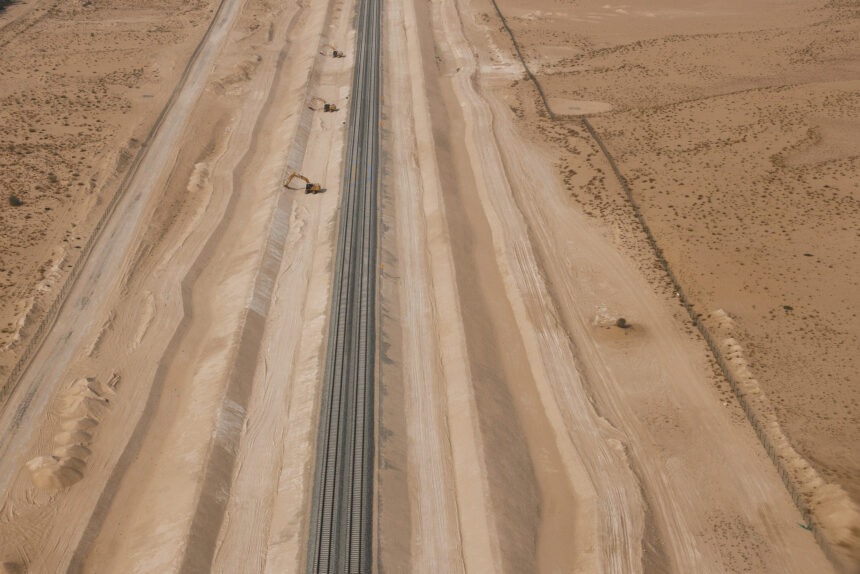1 / 4-trillion-dollar railway venture within the Persian Gulf has lastly gained some momentum, regardless of varied political obstacles having up to now stalled it on the developmental section.
Anticipated to span over 1,240 miles alongside the coast, the Gulf Railway will stretch from Muscat in Oman to Kuwait Metropolis, offering a swift connection for each passengers and freight between the key city facilities of the six member states of the Gulf Cooperation Council (GCC).
“The GCC rail venture will characterize a major leap in connectivity and integration within the Gulf area,” based on the Council’s web site, “yielding direct constructive impacts on intra-trade and the liberty of motion for residents and residents among the many Council states.”
With value estimates for the venture ranging between $167 billion and $250 billion, the GCC Railway ranks because the world’s third largest “megaproject” at the moment beneath building, based on Statista. It’s bested solely by Neom, the $500 billion futuristic metropolis beneath building within the Saudi Arabian desert, and the Trans-European Transport Community (TENT-T) rail, a European Union initiative aiming to boost the continent’s rail connectivity and projected to value round $600 billion.
The Gulf Railway venture was initially launched in 2009 and deliberate for completion by 2018. Nevertheless, oil worth slumps exacerbated the Gulf states’ fiscal difficulties within the mid-2010s and delayed the venture, based on the Economist Intelligence Unit (EIU). The timeline has since been prolonged a number of occasions, with 2030 being the most recent estimated completion date.
As of September, the venture was nonetheless in its design levels, with the main focus remaining on feasibility research, the appointment of consultants and tender processes for varied segments of the railway.
Every of the six GCC member states is accountable for finishing up the a part of the venture that falls inside its borders, however political and financial challenges each inside and among the many six nations have prevented the GCC Railway from gathering a lot steam.
In 2016, Mohammed Al Shuaili of the Omani Ministry of Transport and Communications advised the Occasions of Oman that his nation could be halting work on the GCC Railway because it appeared different Gulf states had “determined to cease work on the venture.”
Whereas the venture acquired a major enhance in 2021 when leaders of the six states agreed to ascertain a centralized authority to coordinate building efforts amongst Council members, home political challenges have continued to impede its progress.
In December, EIU reported that “continual political gridlock” in Kuwait had prevented the nation from implementing its quite a few railway initiatives, together with its portion of the GCC rail venture.
Nevertheless, throughout an October 8 assembly in Abu Dhabi, GCC Secretary Normal Jasem Mohamed Albudaiwi introduced that a number of early components of the venture had been efficiently accomplished.
“Efforts proceed in collaboration with the Normal Secretariat and the GCC Railways Authority to advance the phases of the railway connection venture among the many Council member states, which guarantees to considerably improve Gulf connectivity and integration, leading to direct constructive impacts on commerce motion and on the liberty of motion for residents and residents all through the GCC,” Albudaiwi stated.
He added that Qatar had already ready design and implementation paperwork for its part of the venture, and that Kuwait was within the technique of fleshing out consultancy agreements for its design, anticipated to be finalized by the top of the 12 months.
Standing by the 2030 deadline, Albudaiwi stated that 6 million passengers will be capable to use the railway by the top of the last decade, rising to eight million by 2045, whereas the degrees of freight being transported will improve to 271 million tons from 201 million tons over the identical interval.
Do you’ve a narrative we ought to be protecting? Do you’ve any questions on this text? Contact LiveNews@newsweek.com.








